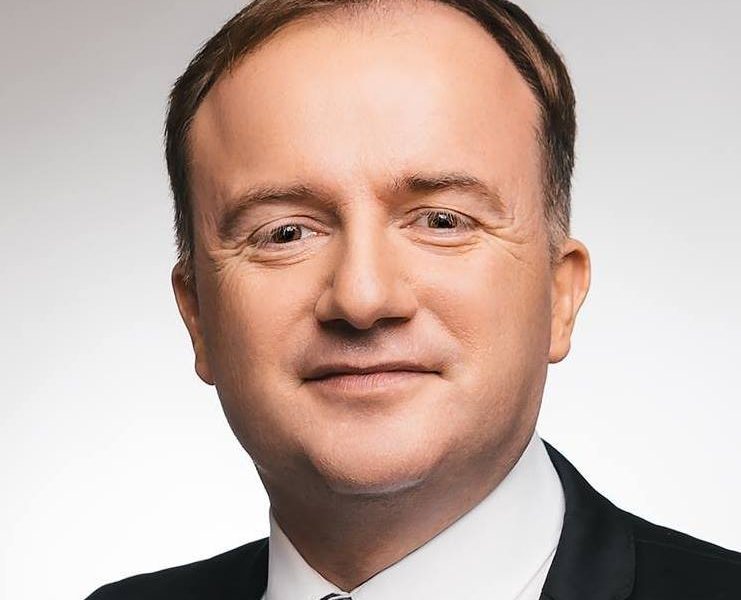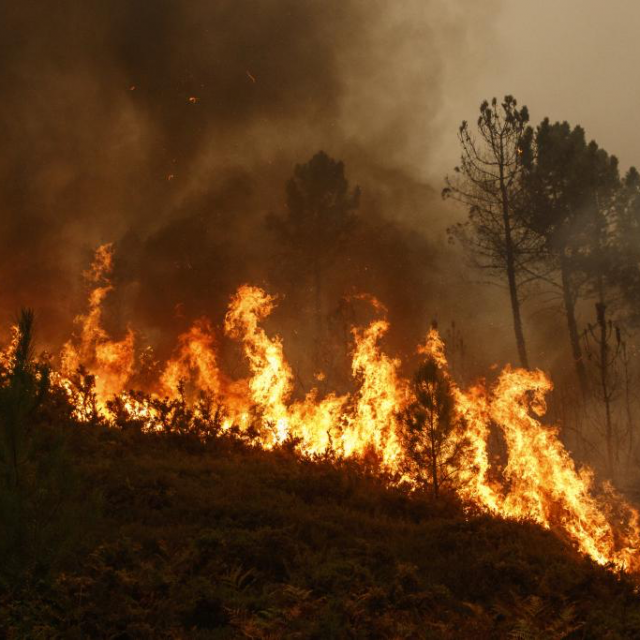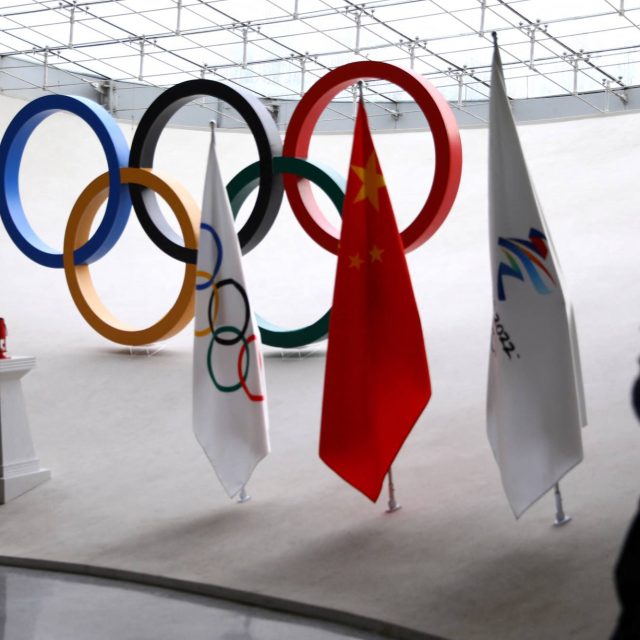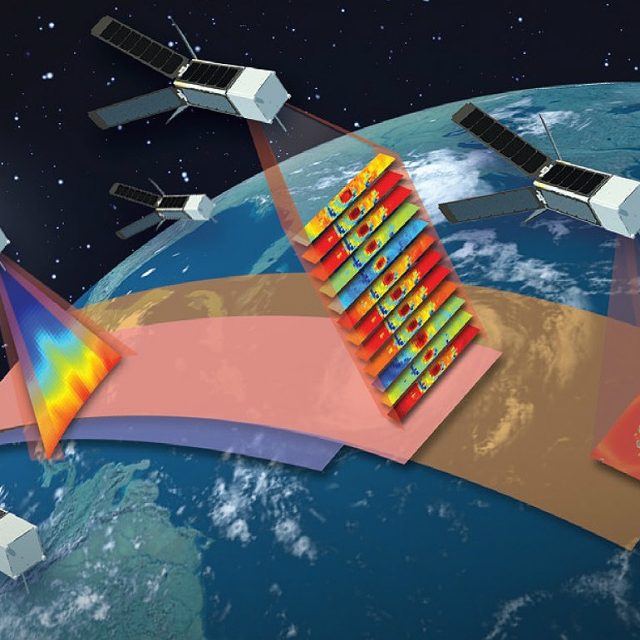Martin Banks interviews Olivier Védrine Chief Editor of the Russian Monitor about Russian President Vladimir Putin.
He also speaks about the case of Alexei Anatolievich Navalny, a Russian politician and anti-corruption activist who came to international prominence by organising demonstrations, and running for office, to advocate reforms against corruption in Russia, Russian President Putin, and Putin’s government.
Olivier Védrine is the Chief Editor of the Russian Monitor and a director of the civil rights movement New Europeans, based in Brussels. In 2012 he moved to Kyiv and in November 2013 he joined the Euromaidan movement, the wave of public demonstrations in Ukraine that ousted president Viktor Yanukovych.
He is an Honorary Professor at Kyiv International University and a leading voice for European values in the region, including Ukraine, Belarus and Russia.
What were your thoughts when you heard about the poisoning of the Russian opposition leader Alexei Navalny?
I was shocked but not surprised because it is not the first time that those fighting for freedom, democracy, transparency and accountability in Russia have been targeted in this way.
We all hope and pray that Alexei will survive this assassination attempt. My fear is that irreversible harm may have already been done to his health, because so much time was lost on the ground in Omsk before he was allowed to be flown to Berlin.
Alexei Navalny is the latest in a long line of opponents to the Russian regime who have been poisoned. The list includes names such as Viktor Yushchenko, (former President of Ukraine), Alexandre Litvinenko, and Serguei Skripal.
There needs to be an investigation before we can officially point the finger at Putin as the perpetrator. What we can say is that these poisonings coincide with moments of high anxiety for the Kremlin. Right now the Kremlin is nervous not just about Belarus, but also about events in the Russian Federation.
When he was poisoned, Navalny was travelling the length and breadth of Russia to campaign for opposition leaders in the 19 regions due to hold elections on 13 September.
Why is Putin so concerned about the regional elections?
Like all leaders, Putin is concerned about his falling popularity as sanctions bite and the COVID crisis deepens. He needs another propaganda victory (such as the one he gained from the invasion of Crimea) to reverse this trend.
The regional elections are the next opportunity for Putin to present himself as a leader with popular support. To achieve that, he would need to falsify the election results, as happened in Belarus. What he wants to avoid, is any kind of protest at such interference.
A consequence of Navalny’s poisoning is that he will not be available to mobilise such a movement in the wake of expected widespread election fraud in Russia in September.
Demonstrations are taking place in Khabarovsk in the East of Russia following the arrest of Sergei Furgal, the popular governor of the region and his replacement by a Kremlin appointee. The arrest is seen by the protestors as politically motivated.
In recent weeks, some of the leaders of the protest movement in Eastern Russia have started to show support for the opposition movement in Belarus.
Add to that, the prospect of further interference by the pro-Putin factions in the municipal elections in Ukraine in October.
If Putin is able to increase his control of the developing situation in Belarus, he will expect to deepen his influence over what happens next in Ukraine.
The world recently marked the International Day of Remembrance for the Victims of Stalinism and Nazism – do you see any parallels with what is happening now?
Of course times have changed, this is not the 1930s. But one stand out parallel is the way in which under Stalin, the state could commit crimes with impunity. That appears to be the situation in relation to Russia and Belarus today.
In authoritarian regimes, not just Russia and Belarus, the individual is the slave of the state. In a democracy, the state is the servant of the citizen. That is why the rule of law is so fundamental. No human rights without the rule of law. No democracy without the rule of law.
Putin understands this well. That is why we have to see everything that is happening in Russia and the former Soviet republics at the moment through the prism of European values. The battle for democracy in Belarus, Ukraine and Russia is a battle for the future of Europe.
What should the European Union do in response to these provocations?
First the EU needs to understand that it is itself under attack. Putin knows that if he can undermine respect for the rule of law in Europe he will be in a stronger position at home.
When I spoke on the Maidan in 2013 and 2014, I got the biggest cheers for the references I made to the EU as a safe space for human rights, the rule of law and democracy.
If we think about Europe in terms of values and not just in terms of geography, then we can understand more easily why it is that Putin wants to destroy the EU.
In response, it is vital that the EU remains united. Putin likes to deal with European states unilaterally but this cannot be allowed to undermine the primacy of multi-lateral relations.
Secondly, this community of values stretches across the Atlantic. A strong defence of European values is a question of hard power. That is why we need a powerful European defence identity as part of NATO.
Thirdly, and most importantly of all in this era of COVID and fake news, is not to lose control of the narrative. We should never abandon our hope and aspirations for a better future for Russia, itself a European power. But we do need to let go of our illusions about Putin.
As Angela Merkel in 2007, commenting to the New Yorker, after Putin had introduced her to his black Labrador despite being aware of her fear of dogs:
“I understand why he has to do this — to prove he’s a man,” Merkel said. “He’s afraid of his own weakness. Russia has nothing, no successful politics or economy. All they have is this.”
What are the implications for your work and for the work of the Russian opposition?
The latest developments point to the increased vulnerability of the Putin regime and are a reminder that the world needs to prepare for the transition to the post-Putin era.
In the meantime, I expect that the Russian Monitor and organisations like ours within the opposition will continue to suffer cyber-attacks and unwelcome attention from the regime.
That is why it is so important that we continue to develop our networks with European civil society and with pro-democracy organisations around the world, including in North America.




